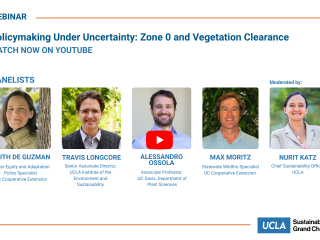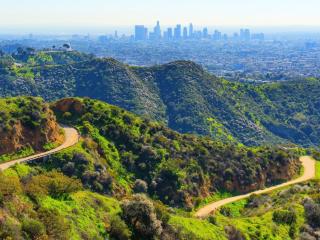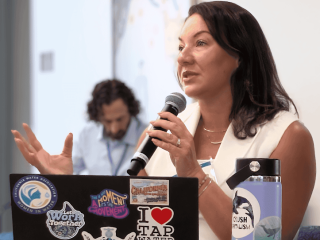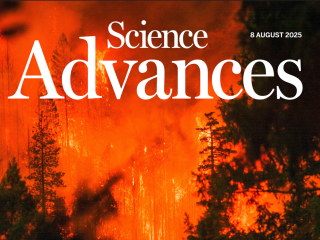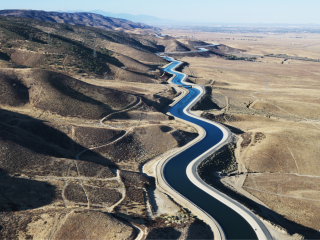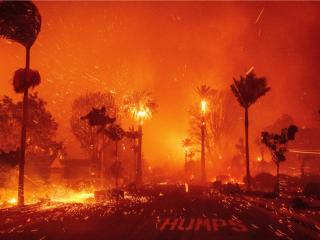Watch the the first in a series of webinar discussions on defensible space that SLAGC is organizing. During Policymaking Under Uncertainty: Zone 0 and Vegetation Clearance, experts discussed what is and—crucially—what isn't known about the role vegetation plays in fire spread. Read more.
Climate & Wildfire Research Initiative
SLAGC brought together dozens of UCLA experts from across disciplines to discuss their research related to the 2025 LA fires, their impacts, and recovery efforts over the course of three lunch dialogue events in October. Read more and watch videos of the experts discussing their work.
A report released today by UCLA—in partnership with LADWP—identifies four areas critical to strengthening water and power infrastructure to reduce risks and improve reliability as climate-related disasters intensify. It details important findings from an intensive June 9 workshop—commissioned by LADWP and developed, organized and hosted by UCLA Luskin Center for Innovation with programmatic and logistical support from the Sustainable LA Grand Challenge (SLAGC)—that brought together key decision-makers to talk frankly and collaboratively to advance broader industry knowledge and capacity.
The January 2025 fires in Los Angeles made clear an issue that has been brewing for years: as wildfires become more urban in nature, what is the role of urban water systems in their prevention, response and recovery? How should water systems prepare for 21st century wildfire events? What policy changes and infrastructure investments are needed to increase resilience? Read about what the experts had to say about these questions at the first of four workshops hosted through a water supply + wildfire research and policy coordination network.
Global warming has advanced wildfire season from one to almost seven weeks earlier, a new UCLA study shows.
More than 40 scholars contributed their expertise to the independent commission, which issued its final recommendations today.
The effort was led by the Luskin Center of Innovation, in partnership with the Emmett Institute on Climate Change and the Environment and with support from the Sustainable LA Grand Challenge. Read more.
UCLA’s Climate & Wildfire Research Initiative (CWRI) Launches New Research and Policy Working Group on Urban Water Supply-Wildfire Dynamics, led by UCLA’s Luskin Center for Innovation (LCI) in partnership with UC Agriculture and Natural Resources’ (UCANR) California Institute for Water Resources
A new study from UCLA experts breaks down the misconceptions around the limitations vegetation management could have played in mitigating the destructiveness of the January 2025 LA fires.
Director of UCLA's California Center for Sustainable Communities Stephanie Pincetl writes, "It is time to unleash creative imagination about how we create a livable future for the 10 million people in LA county."
Read more about her thoughts on reimagining how we build and why.

